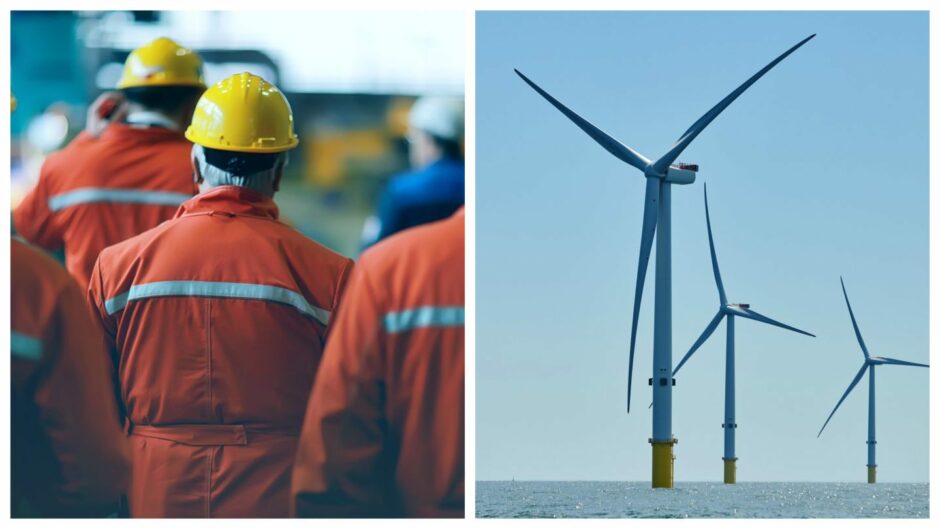
The erosion of the rights and pay of North Sea energy industry workers appear to have taken a further turn for the worse amid the gig economy.
The latest wheeze among companies hiring personnel to work in both the oil and gas and wind industries is that they are being engaged on sort of IR35 contracts, except that they’re not.
According to RMT National Secretary, Darren Procter, they’re not employees; but neither are they self-employed.
The agencies that hire them deducts tax, national insurance and so-forth. They have only fig-leaf protection.
And it is the wind industry that is the worst offender. Hiring in cheap foreign labour for as little as possible while UK workers get screwed.
It appears that one prominent construction/service contractor has just shifted 125 guys on various of its vessels to these IR35 style contracts.
RMT is currently looking into this as the workers have been reclassed by the company as seafarers even though they’re not and the Maritime & Coastguard Agency has been brought in by the union.
Procter says the MCA doesn’t class them as seafarers. They’re considered to be passengers.
There’s more. Under the contracts issued, they’re not employees and they’re not self-employed.
I’m advised that the Maritime Labour Convention only covers workers who are seafarers; who are either employed or are self-employed. And these individuals are apparently neither. Because they’re supposedly on IR35.
RMT says they also have to arrange their own employer’s liability and cannot claim against the company.
Having brought the MCA into the case, the union also wants BEIS, HMRC and the DWP to investigate as it smells a rat.
If there’s an incident offshore, then what? What rights of recourse do their families have? Possibly none.
Procter tells me that the contracts seen by RMT and issued in the wind industry especially, are explicit: “You are providing services only”.
Section 5 of a model contract dated December last year, issued through a Channel Isles company and obtained by Energy Voice, states:
“It is agreed that you are not an employee, agent, partner or servant of the Company (or the Client) and accordingly:-
“(i) this Agreement is not an exclusive arrangement and nothing in this Agreement shall prevent you from providing any other services to a third party provided this does not interfere with or conflict with the provision of the Services under this Agreement;
“(ii) you shall not be entitled to the employment rights, entitlements and benefits of an employee; and
“(iii) the Company or Client shall not be obliged to provide you with any future work nor are you expected to keep yourself available for any future work.
“(iv) You acknowledge that you will be providing services under this Agreement as a temporary worker and as such will not be entitled to any pension, bonus or any other fringe benefits from the Company.”
It’s all about cutting costs, denying workers their legitimate rights and this nonsense has been building since before Brexit.
And it’s like a throwback to the very early days of oil and gas when many offshore industry hopefuls had to go through an agency. It is recorded that one was only employed for the period that you were aboard an installation.
Unless you were an “oil company man”, pretty much everybody worked like that until they eventually gained proper employment rights by getting trade unions involved. It was a hard fight.
Ever heard of the Offshore Wind Workers Concession (OWWC) rules which allows the employment of cheaper foreign nationals on offshore wind projects?
They’re a construct that allows wind developers to ride a coach and file through all the fine ambitions of building a major new, high-grade, low carbon energy industry in Britain.
Originally introduced in 2017, the Tory government has repeatedly renewed the ‘temporary’ OWWC concession. The latest extension runs until April 30. Then what? Cancellation is apparently promised.
RMT and other unions involved with UK offshore energy have been fighting the OWWC right from the day the concession was granted.
Since Brexit, companies are even allowed to evade the usual immigration restrictions and hire foreign nationals to work on vessels engaged in the construction and maintenance of offshore wind farms.
In its “Levelling up at work – fixing work to level up across the UK”, published in October 2021, the TUC claimed that offshore wind was going backwards in terms of UK jobs creation.
It says: “Despite the soaring growth of installed offshore wind energy capacity in the UK over the past ten years, the number of jobs in offshore wind shrank by over one third (37%) between 2014 and 2019, according to ONS data.”
So despite all the fancy claims by Tory politicians over the past 13 years, it seems we’re been pedalled a lie about many thousands of green energy careers on- and offshore.
In short, welcome to the gig economy offshore UK.
It stinks.
Recommended for you
